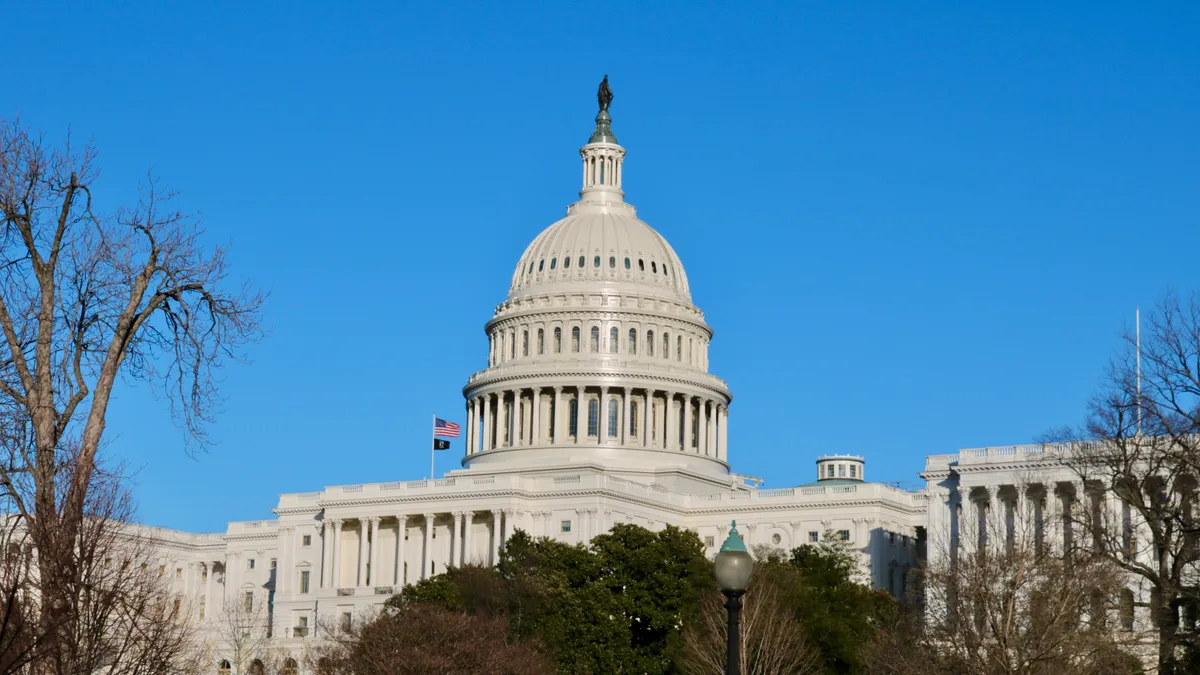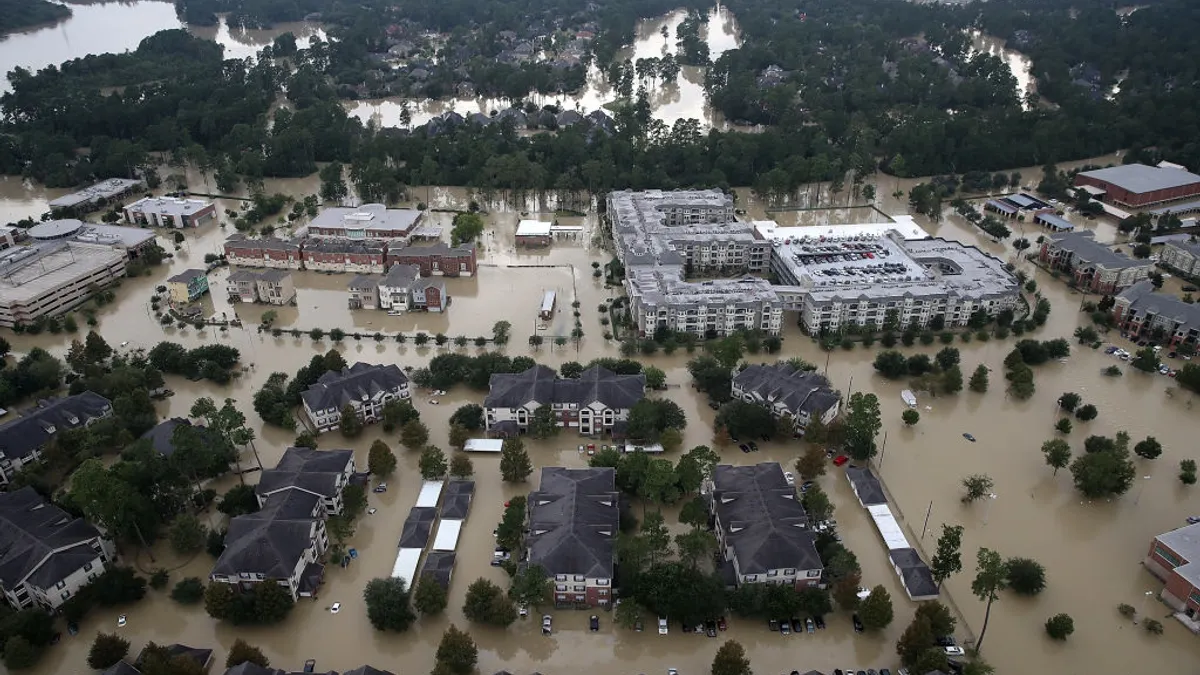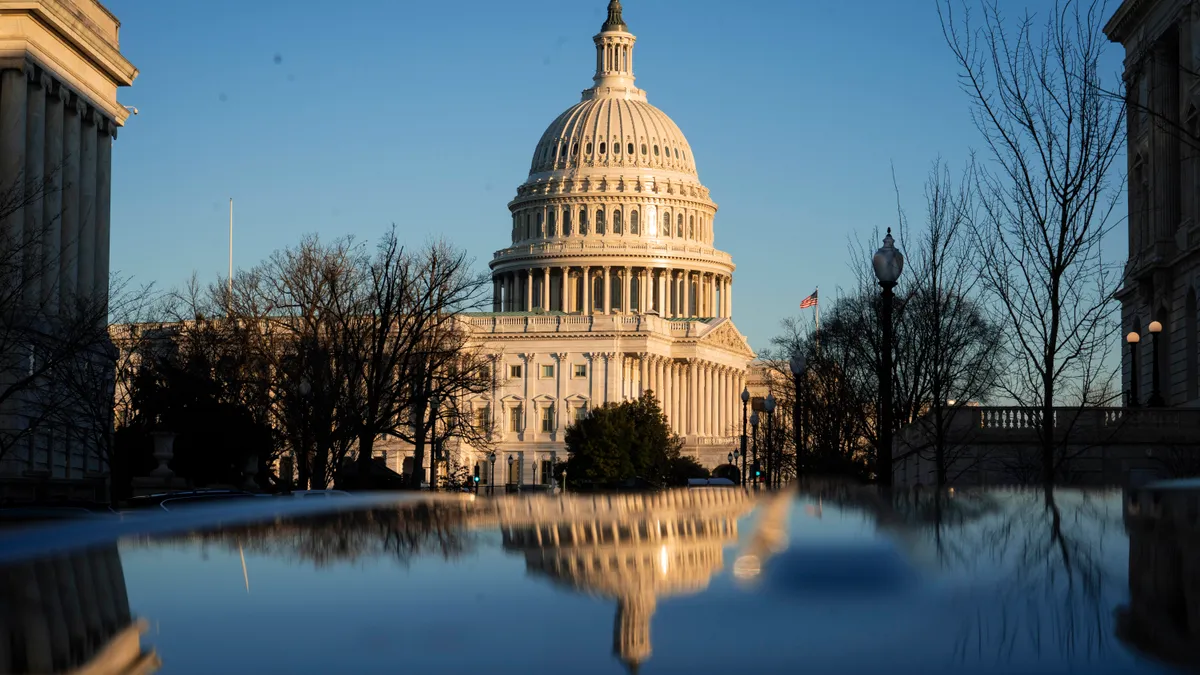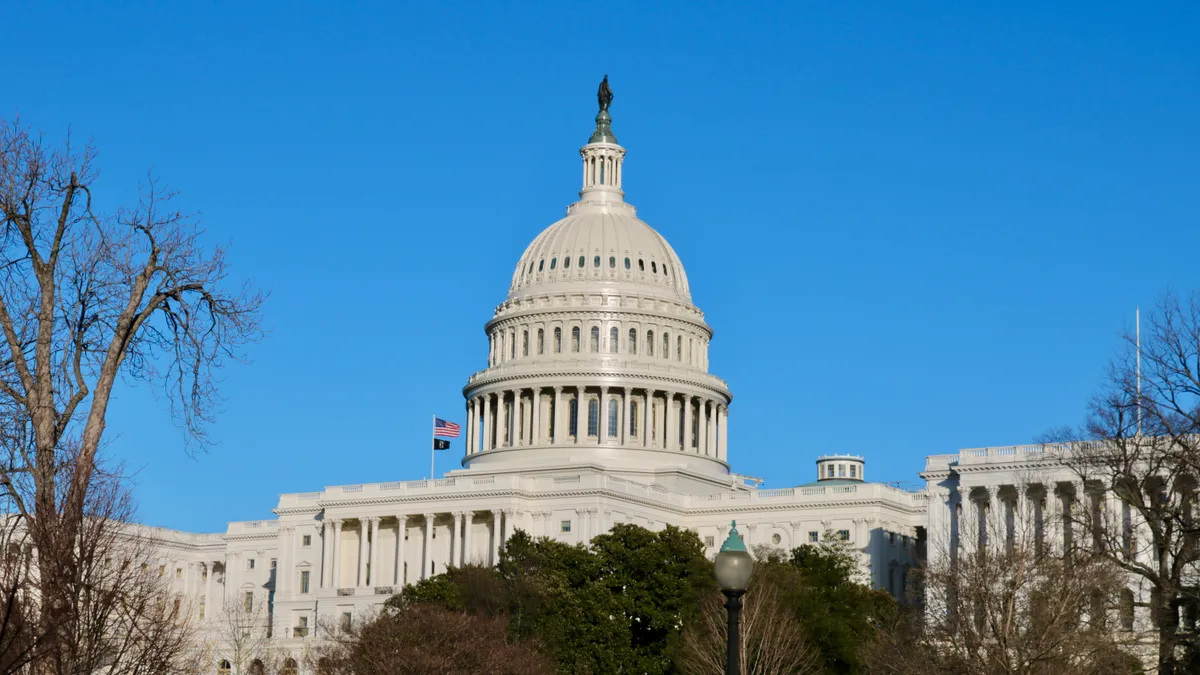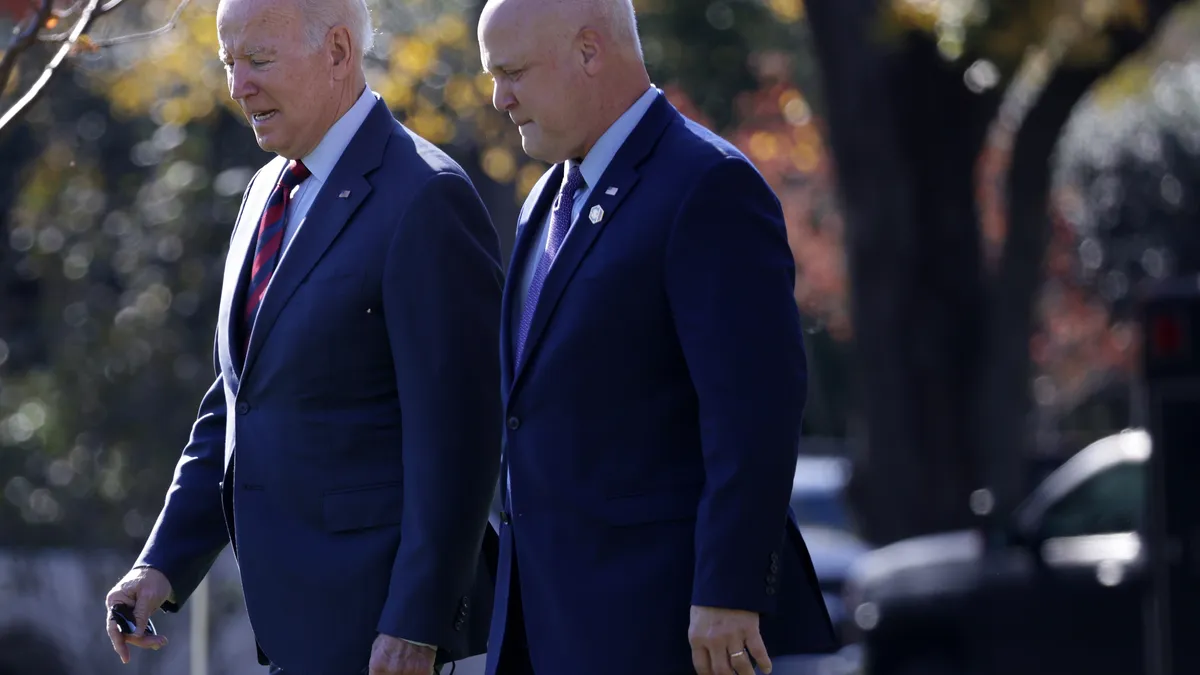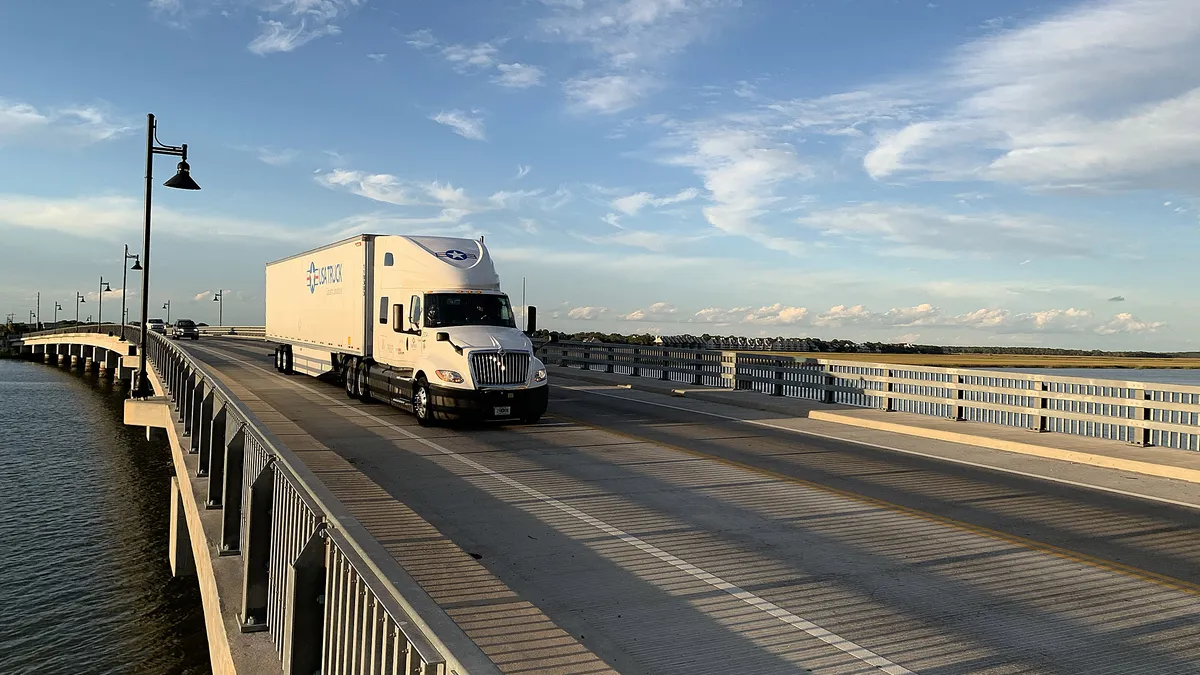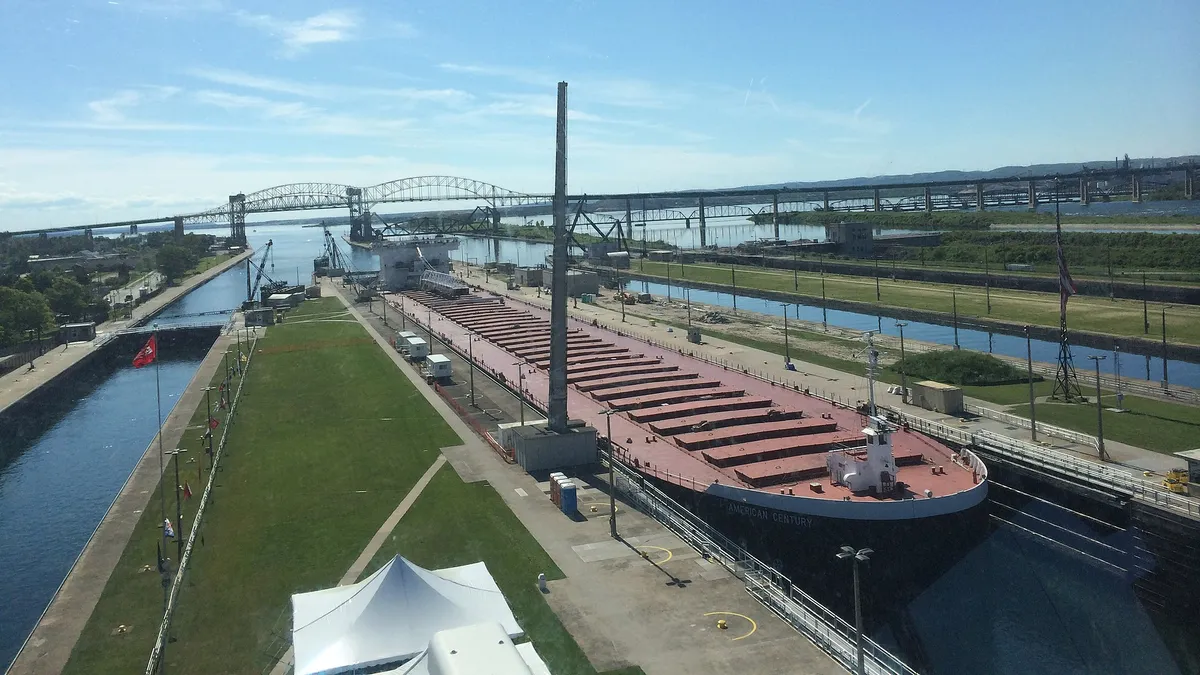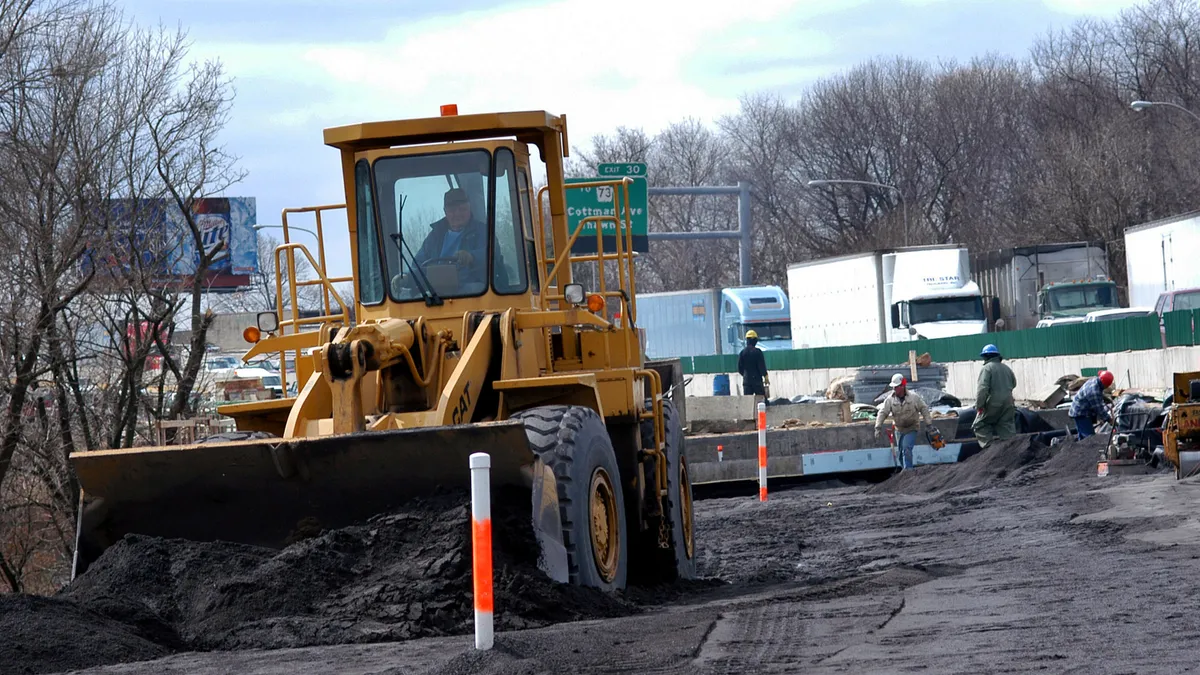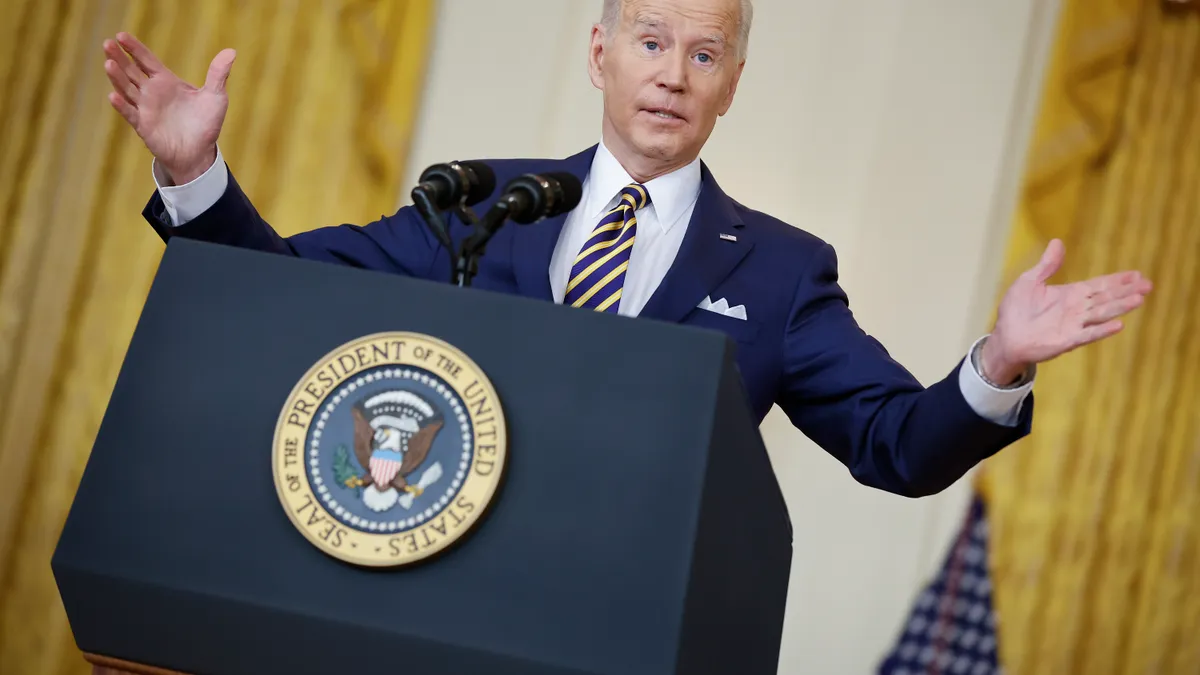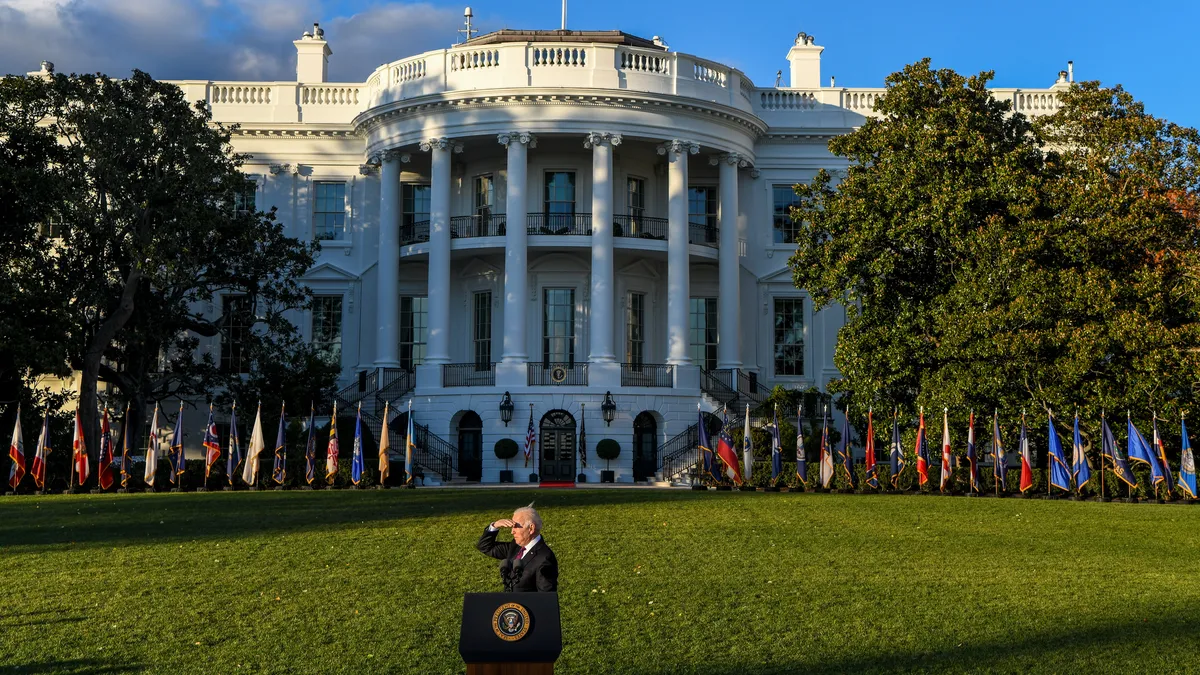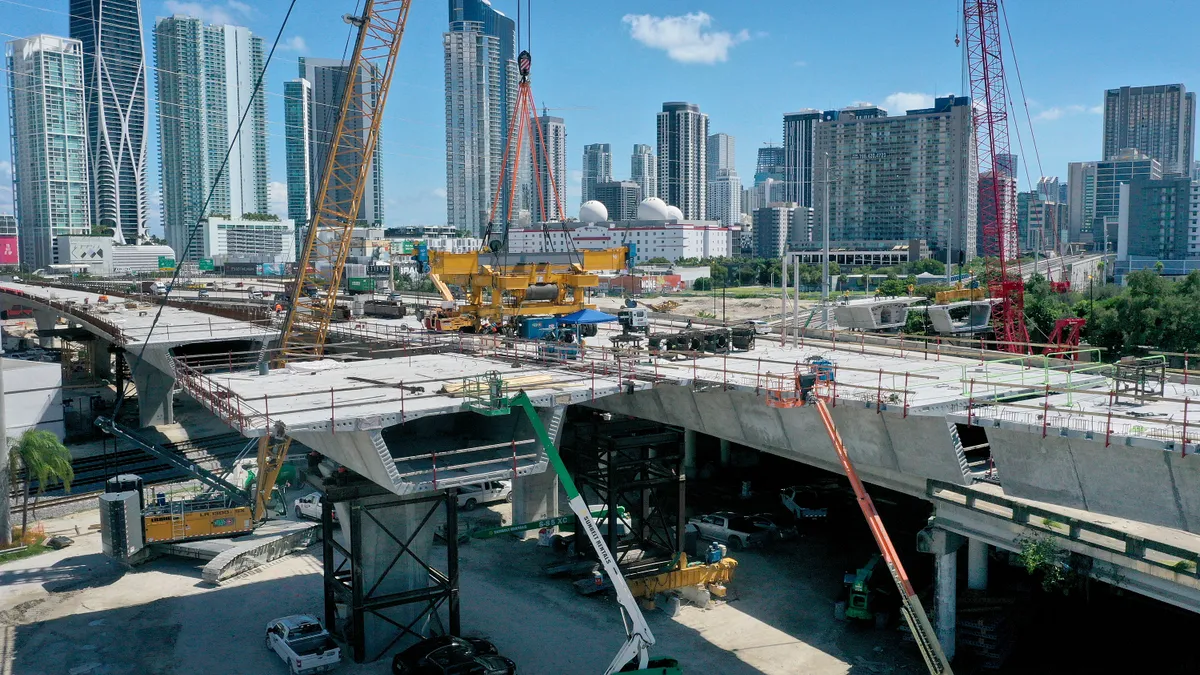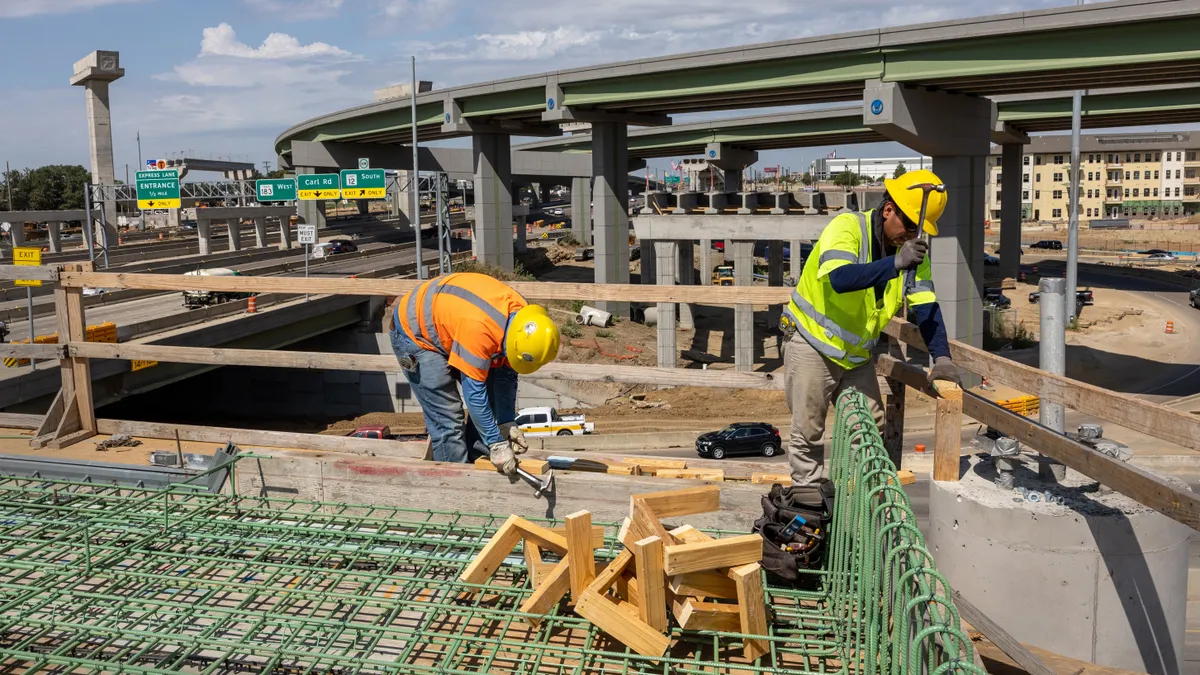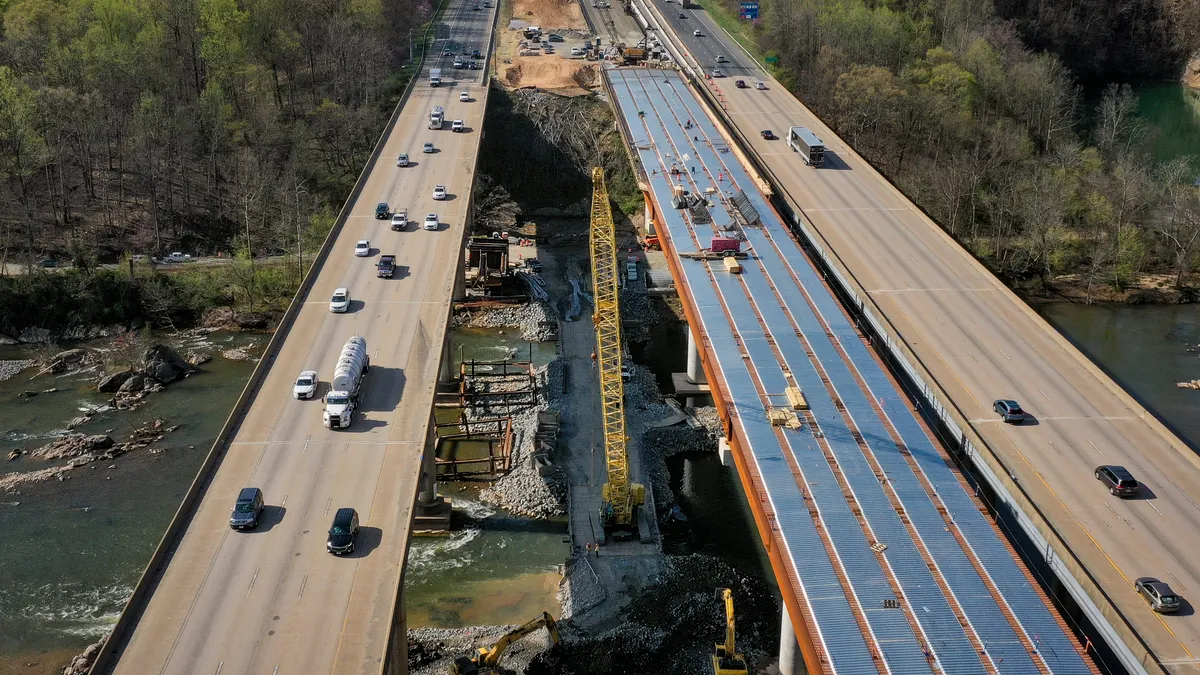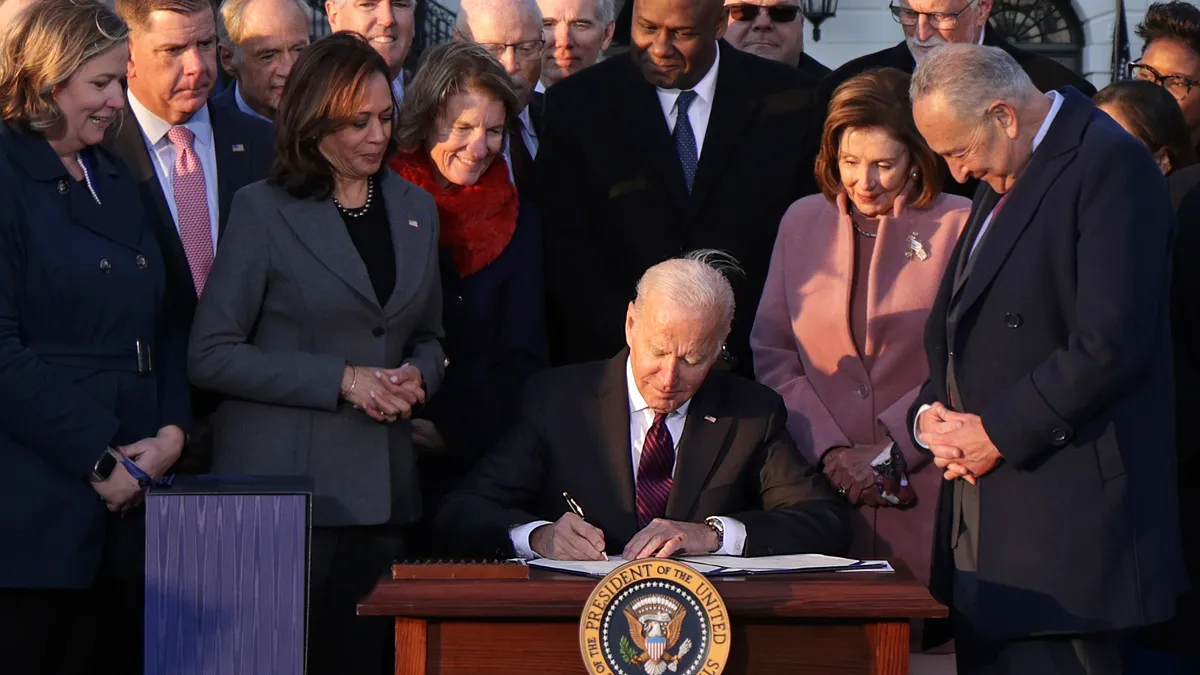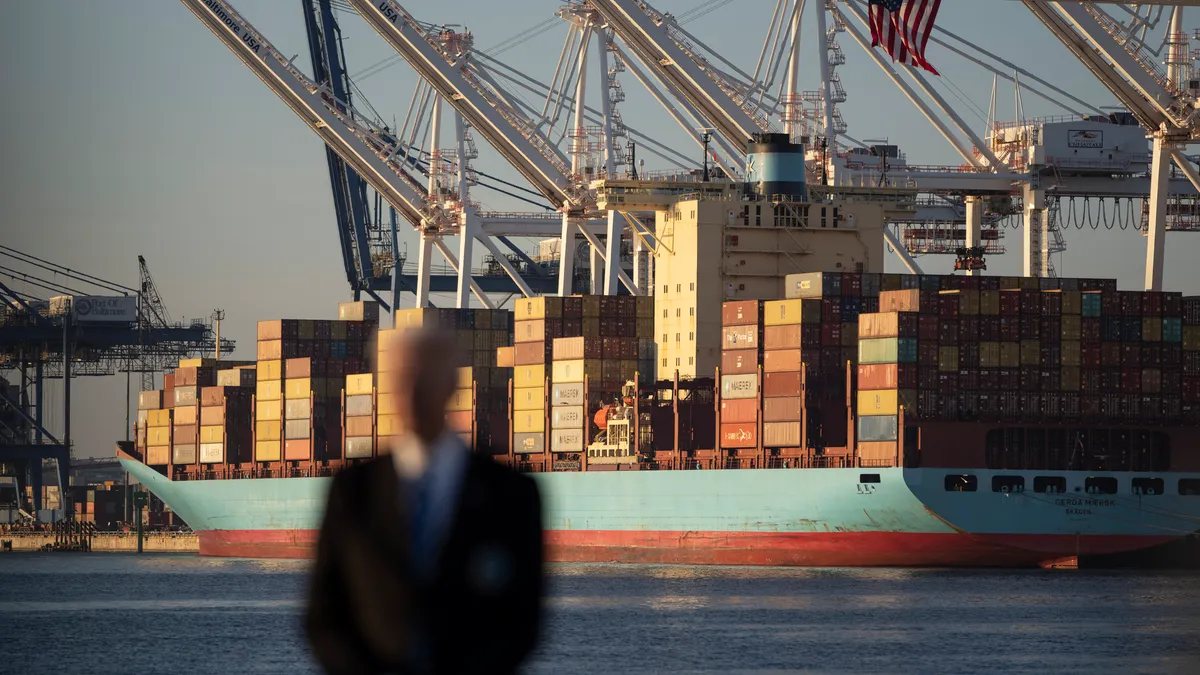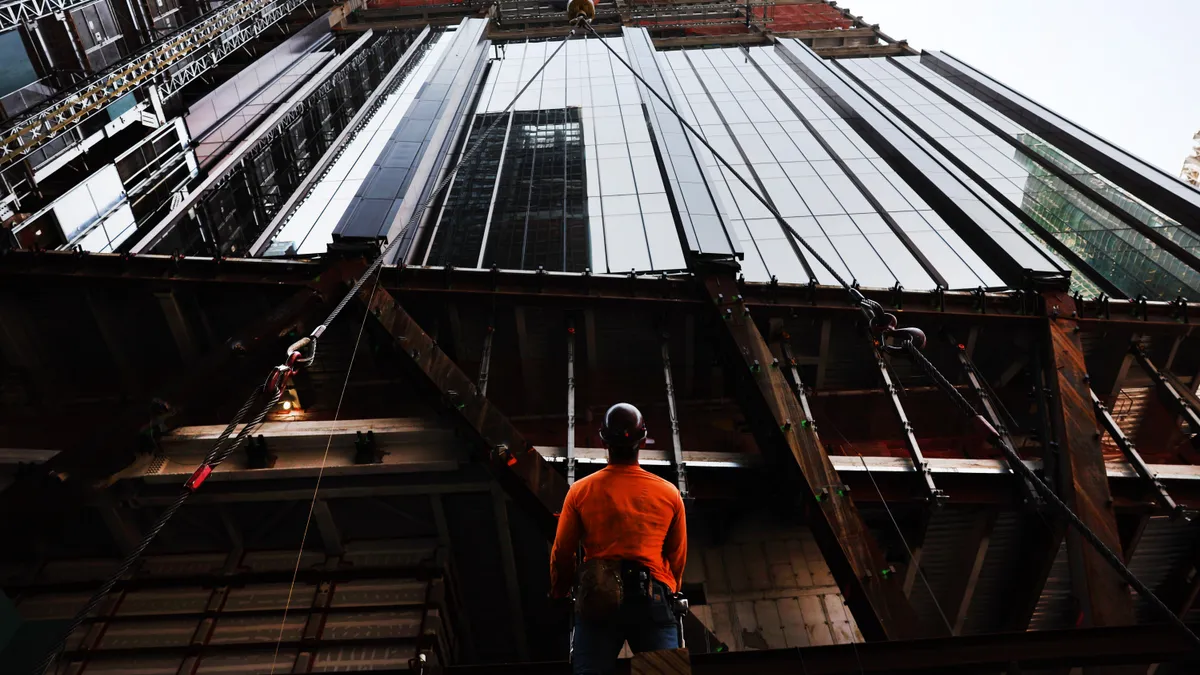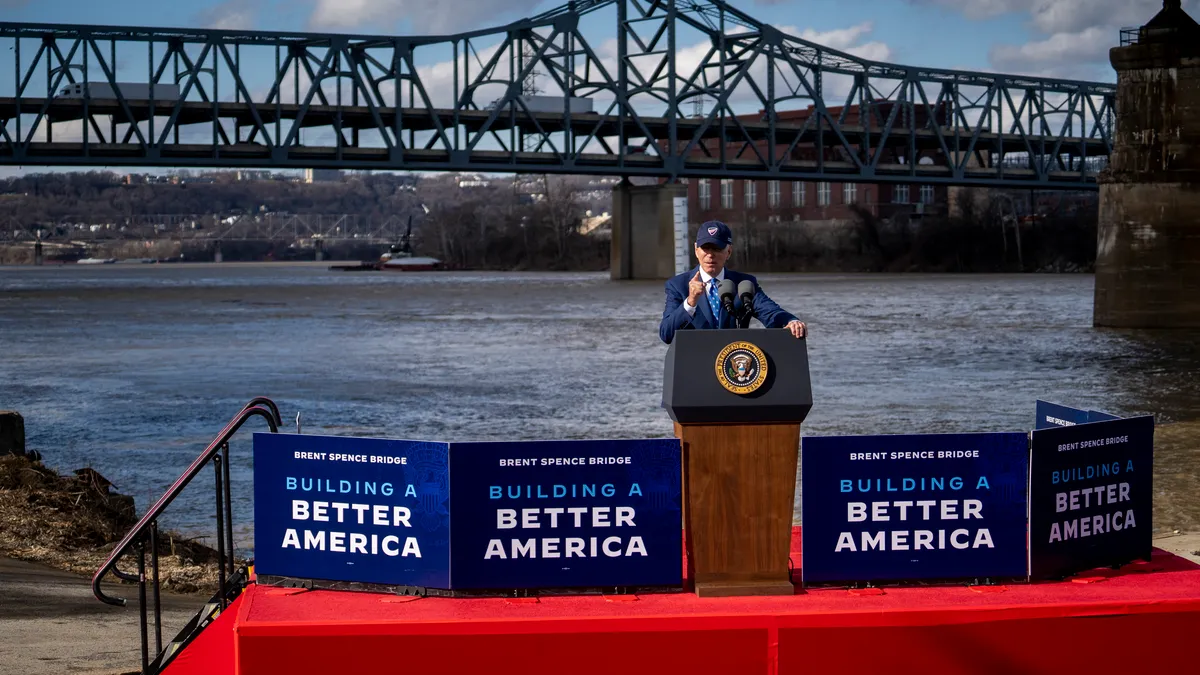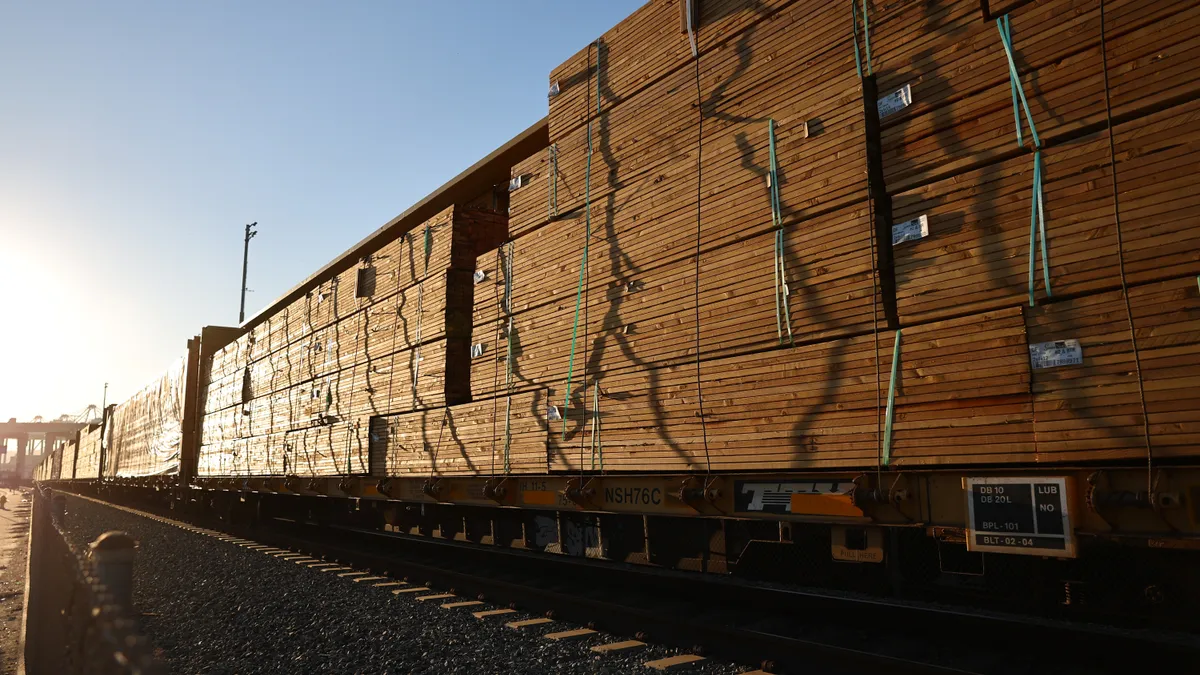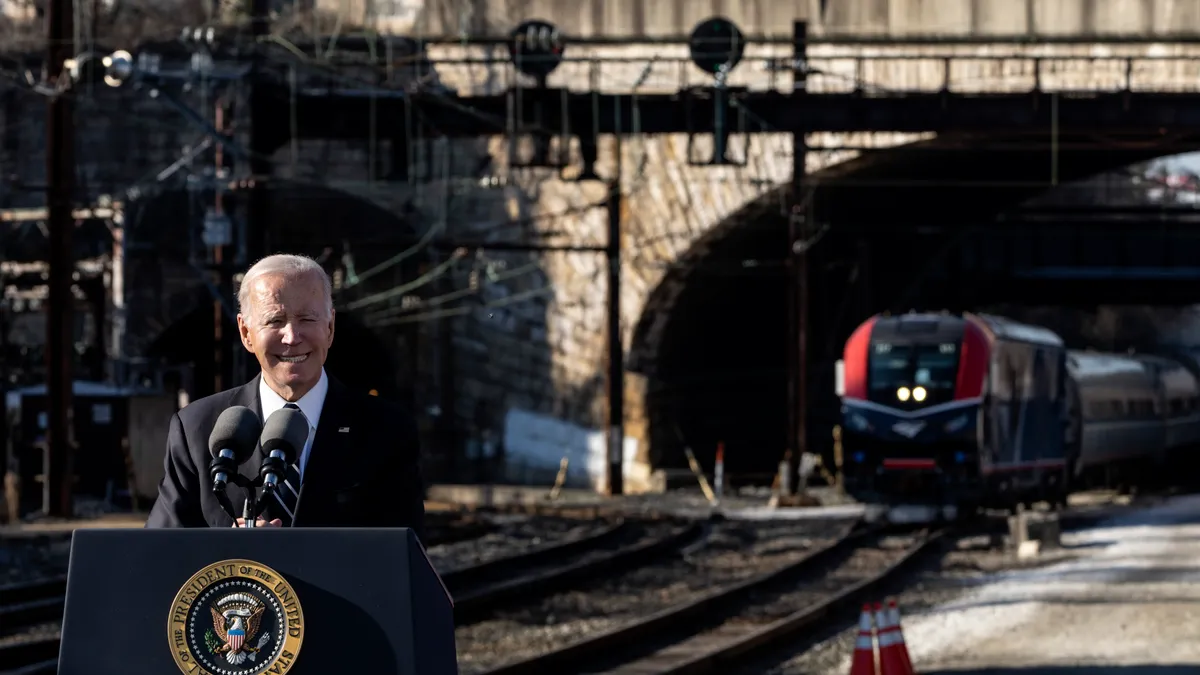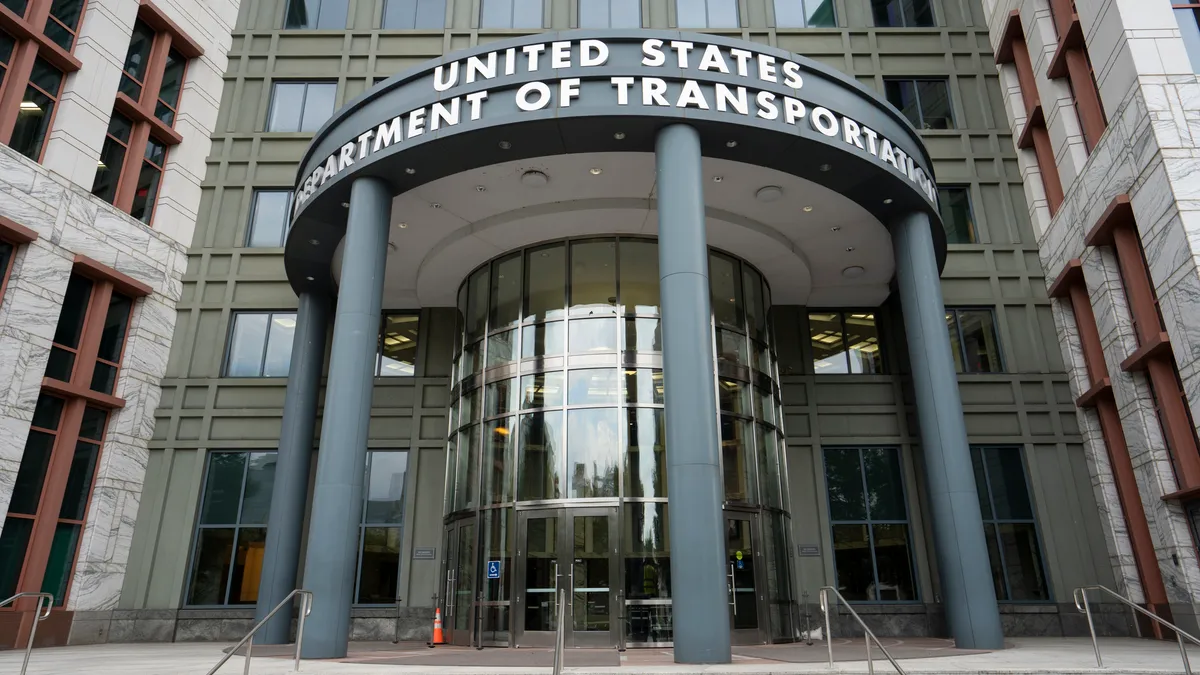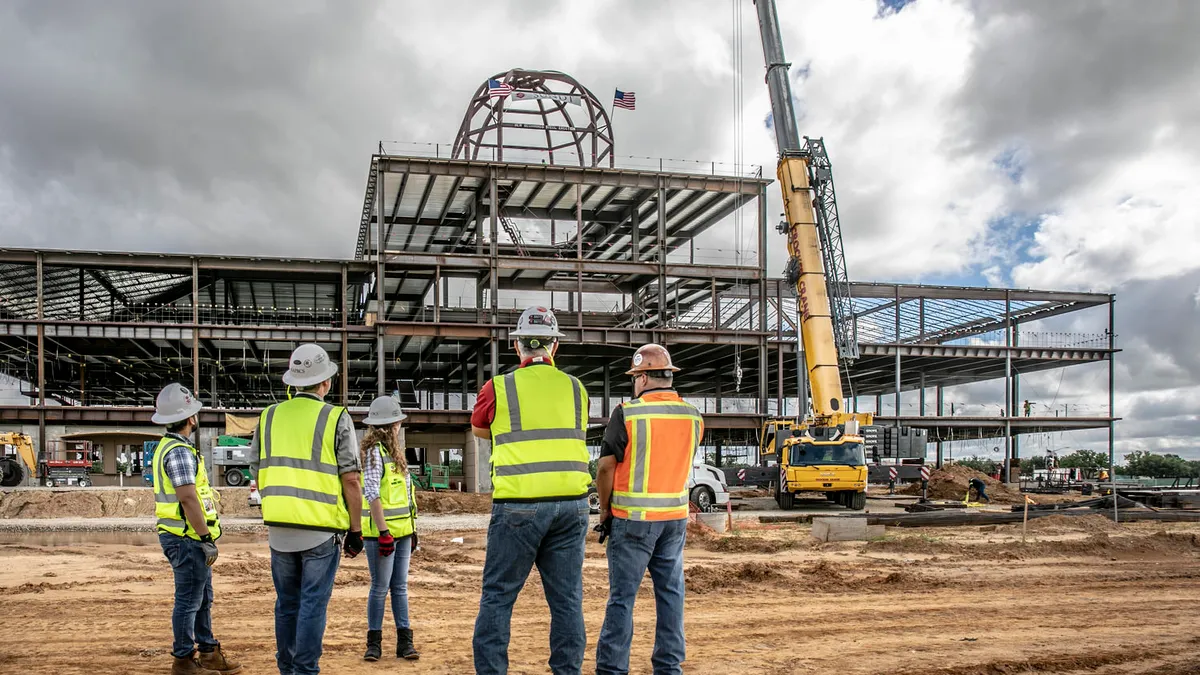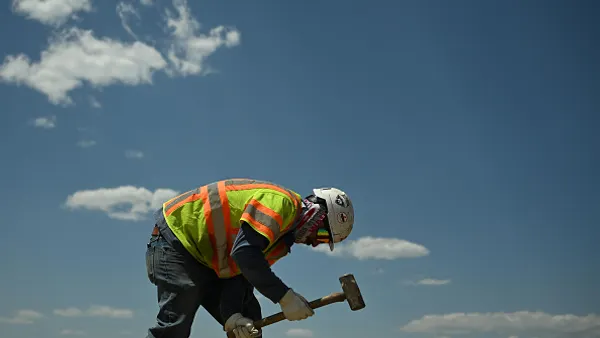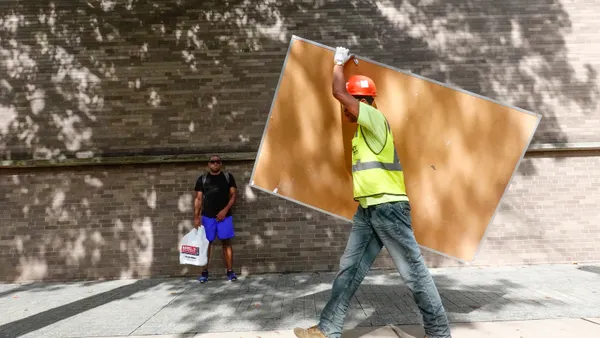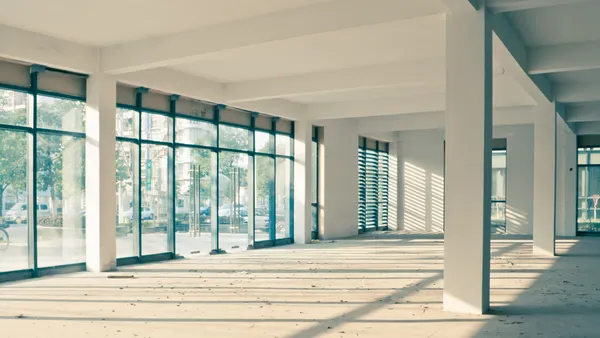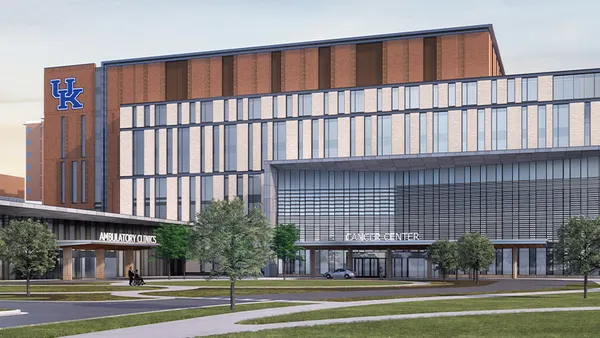Dive Brief:
- The House of Representatives passed a bipartisan infrastructure bill Friday night by a vote of 228 to 206, marking the next to last stop before the long-awaited $1.2 trillion spending package becomes law. President Joe Biden is expected to quickly sign the legislation, which will fund a range of civil construction projects across the country.
- The Infrastructure Investment and Jobs Act (IIJA) passed the Senate in August but was subsequently delayed by infighting among Democrats. Progressive and centrist members struck a deal late Friday, paving the way for the largest new investment the federal government has made in infrastructure in a generation.
- The IIJA includes $550 billion in new civil works spending, including funds for roads, bridges, airports and rail systems. Members of the construction industry largely applauded the bill's passage, saying it provides much-needed resources to modernize the country's aging and overburdened infrastructure.
Dive Insight:
At a press conference Saturday, Biden said the investments will boost American competitiveness and create blue collar jobs modernizing roads and bridges, the vast majority of which will not require a college degree, and many of which will be "good union jobs."
The bill includes the following new infrastructure spending:
| Infrastructure type | Amount |
|---|---|
| Roads and bridges | $110 billion |
| Passenger and freight rail | $66 billion |
| Broadband internet infrastructure | $65 billion |
| Water infrastructure, such as eliminating lead pipes | $55 billion |
| Public transit | $39.2 billion |
| Electrical grid improvements | $73 billion |
| Resiliency (flood and wildfire mitigation, ecosystem restoration, weatherization, cybersecurity etc. | $47.2 billion |
| Electric vehicle chargers and other EV infrastructure | $7.5 billion |
| Cleaning up polluted sites, reclaiming abandoned mines and plugging oil and gas wells | $21 billion |
| Reconnecting urban neighborhoods that were divided by highways | $1 billion |
| Airport maintenance and improvements | $25 billion |
| Port and waterway improvements | $17 billion |
SOURCE: Reuters
Thirteen House Republicans voted for the bill, as well as all but six Democrats. At the press conference, Biden said that Americans would start to see the impacts of the IIJA "within the next two to three months as we get shovels into the ground."
For months, Democratic progressives have been pushing to pass in tandem the IIJA and a $1.75 trillion social spending bill, which includes health care, climate readiness and child care investments. Democratic centrists have opposed the linkage of the bills.
After hours of deliberation Friday, Democrats postponed the vote on the social spending bill after a handful of centrists demanded an independent cost estimate, which could take weeks, Politico reported. The centrist Democrats promised to vote for the social spending bill by Nov. 20, so long as the nonpartisan Congressional Budget Office confirms its costs are in line with White House estimates.
Construction industry responds to the news
Construction industry businesses and associations largely expressed enthusiasm about the infrastructure bill's passage. American Society of Civil Engineers (ASCE) President Dennis Truax said in a statement that the legislation restores the federal government's critical partnership with cities' and states' efforts to modernize their infrastructure.
"It is a great day for the nation as the U.S. House of Representatives passed the Infrastructure Investment and Jobs Act, fulfilling President Biden's vision with a historic piece of legislation that will have monumental impacts on the economy, public safety, global competitiveness and each American's well-being," Traux said.
In a statement, Associated Builders and Contractors (ABC) President and CEO Michael Bellaman said, "Passage of the bipartisan infrastructure bill creates an opportunity to effectively modernize our nation's most critical infrastructure, and ABC and our members stand ready to do the important work to bring America's infrastructure into the 21st century."
Permitting delays can be a major impediment to construction projects, as permit reviews can involve up to 30 statutes and a dozen departments and agencies. A helpful element called One Federal Decision (OFD), which aims to streamline and shorten the process from up to 10 years to two years, made it into the final version of the bill.
Associated General Contractors of America (AGC) CEO Stephen Sandherr praised the One Federal Decision policy in a statement and said the bill will "provide a needed boost to the construction industry."
"Because of today's vote, state and local officials will be able to invest in a more efficient supply chain network. They will also be able to improve roads and bridges to make them safer and more reliable. Metro areas will be able to better maintain and expand transit systems," Sandherr said.
New York Building Congress President and CEO Carlo Scissura expressed excitement about what the IIJA will mean for vital area infrastructure projects.
In a statement, Scissura said, "At long last we will be able to fully realize the Gateway Program — undoubtedly the nation's most important infrastructure project – and countless other essential developments across New York and the country."



